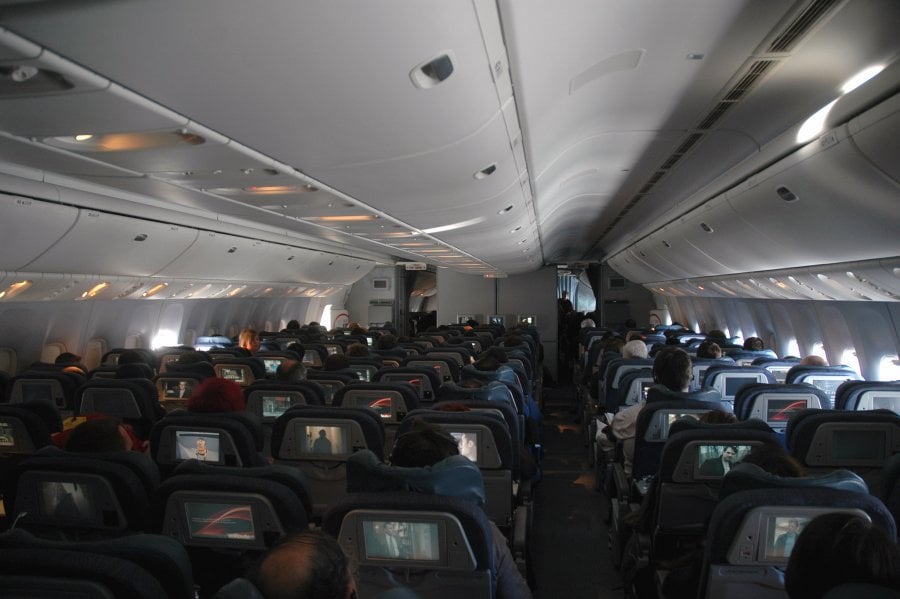First genetic evidence of in-flight COVID-19 transmission
25 September 2020 London School of Hygiene & Tropical Medicine London School of Hygiene & Tropical Medicine https://lshtm.ac.uk/themes/custom/lshtm/images/lshtm-logo-black.png
The researchers say the findings reinforce the urgent need for strong control measures on flights to stop the spread of COVID-19 around the world.
The research, published in Emerging Infectious Diseases, was led by the London School of Hygiene & Tropical Medicine (LSHTM), the University of Hong Kong and the Centre for Health Protection, Department of Health, Hong Kong.
In-flight transmission of many infectious diseases is well documented, with many pathogens known to transmit between air passengers – including measles virus, H1N1 influenza A virus, tuberculosis, norovirus, and SARS-CoV-1. There have been numerous reports of possible COVID-19 transmission on planes but this is the first study to support this with genetic evidence.
Using publicly available data from Hong Kong, the team were able to identify a cluster of COVID-19 transmissions which occurred on the 15-hour flight. The researchers sequenced the virus genome from four individuals on the flight – two passengers who became ill on the day of arrival in Hong Kong after visiting North America in mid-February and two flight attendants who tested positive within 11 days of the flight arrival.
By examining their viral genomes, the researchers found that all four cases shared an identical sequence which had not been found in Hong Kong before. Epidemiological investigation also revealed that one of the flight attendants served the two passengers during the flight.
The findings strongly suggest that COVID-19 can be transmitted during air travel, since the analysis indicates that the passengers caught the virus prior to boarding the plane in Boston and transmitted the virus to one or both of the flight attendants.
Dr Edward Choi, Assistant Professor at LSHTM, said: “Genetic sequencing linked all four cases in this cluster, showing that COVID-19 transmission on board a long haul flight is a real risk, with the potential to result in multiple cases of infection. We live in an age of global travel, so in-flight control measures to protect both passengers and crew from infection are essential to stop global spread of COVID-19.”
The flight studied occurred before the International Air Transport Association (IATA) issued recommendations that passengers and crew wear face masks during air travel. It is not known if the infected individuals were wearing masks on the flight. Not all passengers were tested for SARS-CoV-2 after the flight so it is not possible to know if there were more cases of in-flight transmission.
The authors acknowledge that they cannot completely rule out the possibility that the flight attendants were infected before boarding but the exact match of the virus sequences and the fact that that a virus with that sequence had not been previously noted in Hong Kong make this highly unlikely.
Publication
Edward M. Choi, Daniel K.W. Chu, Peter K.C. Cheng, Dominic N.C. Tsang, Malik Peiris, Daniel G. Bausch, Leo L.M. Poon, and Deborah Watson-Jones. In-flight transmission of severe acute respiratory syndrome coronavirus 2. Emerging Infectious Diseases. DOI: 10.3201/eid2611.203254
Our postgraduate taught courses provide health practitioners, clinicians, policy-makers, scientists and recent graduates with a world-class qualification in public and global health.
If you are coming to LSHTM to study a distance learning programme (PG Cert, PG Dip, MSc or individual modules) starting in 2024, you may be eligible for a 5% discount on your tuition fees.
These fee reduction schemes are available for a limited time only.